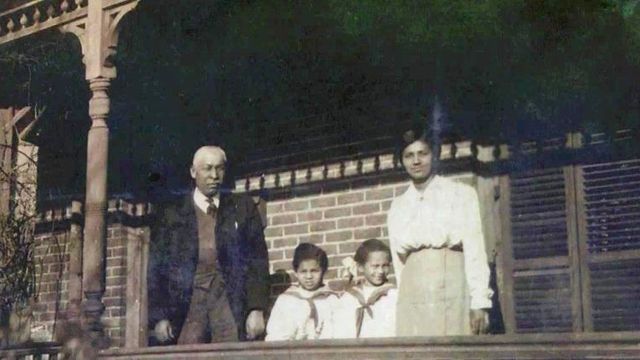Pope House highlights African American contributions to early Raleigh medicine, civil rights
This will be a special weekend for the Pope House Museum, as it plays a special part in the 2016 African American Cultural Festival on both Saturday and Sunday in downtown Raleigh on Fayetteville Street and City Plaza.
Posted — UpdatedThe many skyscrapers in downtown Raleigh overwhelm the small but elegant structure at 511 South Wilmington St., the former home of Dr. M.T. Pope.
Pope graduated from Shaw University in the Leonard School of Medicine back in 1886 and was the first African American to practice medicine in the state. He went on to serve in the Spanish American War, and in 1919, was the first African American to run for mayor in Raleigh.
The Pope House is furnished today much as it was when Pope and his second wife Delia raised their two daughters, Evelyn and Ruth.
The museum's program manager Joshua Trower shares stories with visitors about Pope's military years and his connections with other prominent African American men in Raleigh, such as his medical degree from Shaw or his relationship with James Hamlin, founder of Hamlin Drugs on Hargett Street.
Many tools of Pope's trade are also on exhibit.
Pope also made his mark in Raleigh city politics simply by being one of only seven African Americans in the early 1900s to vote.
"By law, by the poll tax, he shouldn't have been allowed to because they said, 'Well, you have to have a relative who could vote before 1866," Trower said. "Impossible. He didn't. But he was allowed to vote, so that kind of speaks to his connections."
Even with connections, though, running for mayor in 1919 was a bit risky, even if he was a long shot to win
"He loses the election, gets 125 votes," Trower said. "He knows he's not going to win, but just for the symbolism of it all. After that, he sort of retires from professional life and dies in 1934."
His daughters lived on with long careers in teaching, carrying on their father's legacy of education.
The Pope House Museum will have tours as they do every Saturday, but they will include special exhibits this weekend.
Pope was a trailblazer: advancing equality and civil rights in the state decades before the modern Civil Rights movement in the late 1950s and 1960s.
• Credits
Copyright 2024 by Capitol Broadcasting Company. All rights reserved. This material may not be published, broadcast, rewritten or redistributed.





